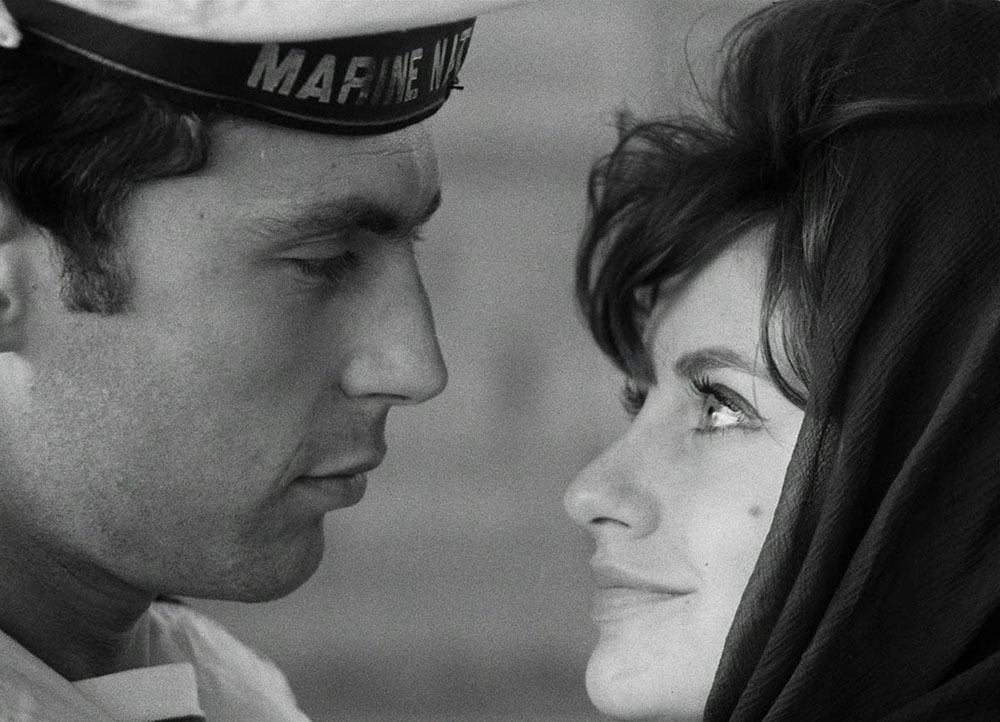She is a girl from Normandy who dreams to the tune of love songs. He is a boy stationed in Brest who looks sad when he smiles. The two find each other in Guy Gilles’s L’amour à la mer (1965). Set in Paris during the denouement of the Algerian War, Gilles’s film is about life's quietest cruelty: the passage of time. Over the course of L’amour à la mer’s 74 minutes, the months and seasons pass, all indifferently. Love blossoms; love dies. Time continues heedlessly, in spite of the withering of passion, the suffering plight of love. How do we acknowledge injustice—whether it be of our countries or of our desires—when all this will be forgotten?
The film’s rhythm is quick, nearly hasty. But the motions of these actors—languorous, almost stiff—contradict the blinking pace of time. After his return to Paris, Daniel (Daniel Moosmann) and Geneviève (Geneviève Thénier) fall into bed together, their arms laid atop each other with the symmetry of desire: intimate, yet eerily still. The two kiss less like people, and more like marble statues. Their lips are rigid, as though they might crack if forced to part any differently. This fragility—the realization that all of this is ephemeral, that even tenderness and carnal wants can shatter—is the true feeling of this film.
"Our days will pass, we will be far away from each other, and you will quickly forget. That's the kind of man you are," Romy Schneider tells Alain Delon in the film-within-the-film. Forgetting: is this slumber or death? "Me, I'll fall asleep," Schneider continues. A series of shots find Geneviève lying in bed, covers pulled to her eyes. She and the camera are still; only her eyes flicker. Daniel's eyes flash to a newspaper headline: "I aim to be dead by 20." A woman in a coffee shop, overheard by Geneviève, tells her husband: "I am already dead." After five years spent in service, Daniel asks himself: Were these years "lost" or "passed"? The war ends. Algeria gains independence from France. Daniel, too, decides he must part from Geneviève. What will their memories mean in the next summer, the next winter, the next injury of love? Do we spend our whole lives measuring the wounds of the past? What dies when we forget? These questions have no answers. All that can be done is to hold still: to be the marble lover.
L'amour à la mer screens tonight, May 17, at the Museum of Modern Art as part of the series “Forgotten Filmmakers of the French New Wave.” It is also streaming on MUBI.



